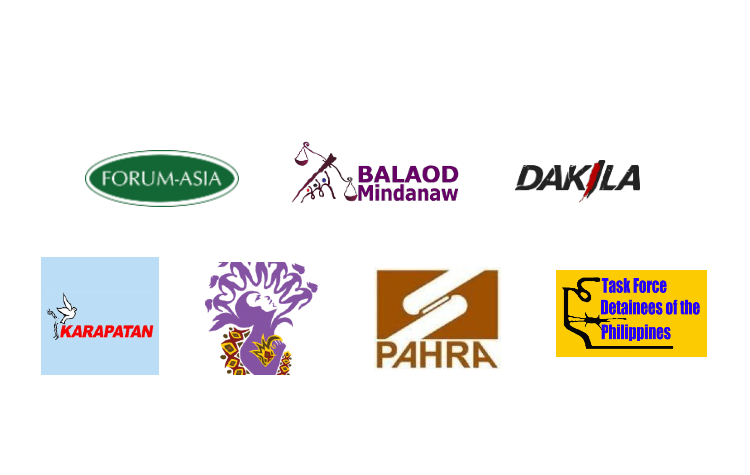![]()
Philippines: Proposed Anti-Terrorism Law will solidify abuse of State power
(Bangkok, 2 June 2020) – The railroading of the Anti-Terrorism Bill in the Philippines will further erode human rights in the country, rights groups said today.
The Asian Forum of Human Rights and Development (FORUM-ASIA) and its member organisations Balaod Mindanaw, Dakila, Karapatan, LILAK (Purple Action for Indigenous Women’s Rights), Philippine Alliance of Human Rights Advocates (PAHRA), and Task Force Detainees of the Philippines (TFDP) warned that the proposed law would lead to a crackdown on civic space and fundamental freedoms.
‘We have seen the systematic intimidation of civil society, from human rights organisations to journalists and the general public under the Duterte regime. The Anti-Terrorism Bill would institutionalise and facilitate an abuse of power, leading the weaponisation of the law against its people,’ the groups said.
On 1 June, President Rodrigo Duterte certified House Bill 6875 or the Anti-Terrorism Bill as urgent, which would allow the House of Representatives to fast-track its approval.[1] The bill is expected to be passed before the Congress adjourns on 5 June. The House of Representatives had earlier adopted the Senate version of the bill, approved in February 2020, to facilitate its passage into law.
The proposed anti-terror law contains provisions that effectively erode civil liberties and remove necessary checks in power. Vague language in the bill, including on the definition of terrorism which includes acts committed ‘regardless of the stage of execution’ would allow for broad interpretation and overreach.[2]
The bill allows for a lengthened period of warrantless detention, and surveillance that go beyond stipulations in existing national security legislation. It would lead to the creation of an Anti-Terrorism Council, comprised of State officials, which would have the power to authorise the arrest and detention of a person suspected of being a terrorist – a power reserved for the Courts.
Under Duterte’s administration, repressive laws and policies have been used as tools of intimidation and reprisals against human rights defenders and critics. Executive Order No. 70, adopted in 2018, led to the consolidation of the country’s agencies towards a whole-of-nation approach against national insurgency. This policy was used to justify surveillance activities and raids against organisations accused of being communist fronts.[3]
Citing ‘national security’, State officials have regularly released lists tagging human rights defenders, including United Nations Special Rapporteur Victoria Tauli-Corpuz, as terrorists. FORUM-ASIA’s members Karapatan, PAHRA and TFDP have also been labelled as terrorists for speaking out against human rights violations in the country. These accusations threaten their security and compromise the ability to conduct their work.
The administration has used existing legislation, including on cyber-libel and sedition to target critics, while pushing for new laws that dismantle Constitutional guarantees, and stifle dissent. The recently introduced Bayanihan to Heal as One Act included a ‘fake news’ provision which has been used to arrest individuals posting online criticism of the government’s response to the pandemic.
‘Fast-tracking the Anti-Terrorism Bill at a time when the country is grappling with the effects of a public health emergency demonstrates a complete disregard for any trust the public has placed in its Government. Members of the Philippine Congress should take a strong stand against this bill and demonstrate that they are capable of upholding democracy and not just the wishes of their President,’ urged the rights groups.
**
For a PDF version of this statement, please click here.
For further information, please contact:
East Asia and ASEAN Programme, FORUM-ASIA at [email protected]
For media inquiries, please contact:
Yi-Lan, Communication and Media Programme, FORUM-ASIA at [email protected]
[1] https://www.rappler.com/nation/262565-duterte-certifies-urgent-tougher-anti-terrorism-bill
[2] http://www.congress.gov.ph/legisdocs/first_18/CR00340.pdf
[3] https://www.philstar.com/headlines/2020/02/09/1991651/chr-anti-insurgency-drive-being-used-justify-threats-attacks-activists




